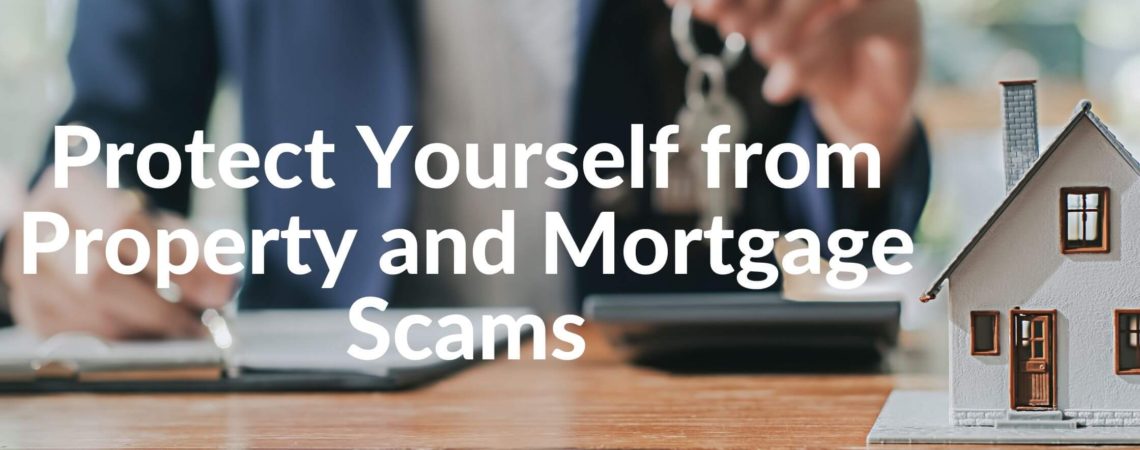
Protect Yourself from Property and Mortgage Scams
Purchasing a home for the first time is exciting and spooky at the same time. The fact that homes are worth so much, and that you’re barely familiar with the process makes you vulnerable to a mortgage scam.
Canadians are falling victims to property fraud because the tactics that fraudsters deploy are now more complicated. We take a look at how you can protect yourself.
What are the main scams?
There are two distinct types of property scams. See them below:
- Escrow Wire Fraud
An escrow service is a ‘middleman’ for two parties – a buyer and a seller – who have reached an agreement on an item, say a property, for sale.
A fraudster may send you a text, call your phone, or drop you an email claiming to be from an escrow company with guidelines on where to wire your escrow funds. Often, they create a clone website to the lending business you’re working with, and it appears like the authentic deal.
These fraudsters use spoofing tricks to generate phone numbers, email addresses, and sites that look familiar like the original. But, they miss a line or two – an easy clue to fish this out.
Unknowingly, you follow the guidelines and even complete the process, when in the real sense, you’re just the latest victim of escrow fraud.
Protecting Yourself
First and foremost, staying at alert is key to preventing escrow fraud.
Verify that the email addresses and contact details match. Don’t use the phone number in the mail. If you can, ask for proof of cyber fraud insurance from your title company.
- Foreclosure Relief Fraud
Desperate people are vulnerable folks. For most, their property is the peak of their investment, and they source for help to save it from foreclosure, especially on hard times.
That’s when fraudsters, who have eyes into the public data of properties in pre-foreclosure, plunge in with offers of foreclosure relief to leverage property owners’ susceptibility.
Sometimes, they claim they help homeowners reduce their mortgage fees for a huge, up-front payment. Most often, some scammers claim they’re affiliated with the government, and can dupe homeowners of thousands of dollars.
Protecting Yourself
The best way to protect yourself from unscrupulous con artists is to work closely with your loan service provider to either modify your existing loan or request forbearance.
Reach out to your loan provider to see what options are available. This helps because a scammer will not talk to your lender. So, that’s a red flag for you.
Tips to Protect Yourself from Property and Mortgage Scams
Fortunately, there are ways you can protect yourself from this kind of fraud alert.
- Be Suspicious of Unsolicited Mortgage Offers.
Be cautious when an uninvited person sends you an unsolicited mortgage offer via the mail, text, or phone. The sender may claim to be a mortgage business or an affiliate, yet they’re just there to scam you.
They will want to persuade or coerce you into believing them and gaining your trust with several tactics. However, be reminded that if it looks too good to be true, it probably is a scam.
- Beware of any requests for your credit or money.
Sometimes, con artists combine mortgage scam with identity theft and go after your home’s equity.
Protect yourself by not sharing your credit card details, online account login, or send money to anyone you don’t know or trust. Moreover, don’t open suspicious mail as it could be one of their phishing tactics.
- Conduct Thorough Background Checks
Ensure you verify the names, seals, representation, and logos made by ‘so-called’ mortgage rescue firms. Keep in mind that even anyone who refers you or promotes such deals may be part of them.
Scammers have just one job to do – trick borrowers into believing that they qualify for a government housing program rather than focusing on repaying a loan. Knowing how official bodies operate will better prepare you against property and mortgage scams.
- Contact Your Lender
According to the Federal Bureau of Investigation (FBI), mortgage fraud has nearly tripled in the last five years. So, you must educate yourself.
One of the best practices to avoid scam yet is to contact your lender before the situation goes out of hand. And it may interest you to know that they don’t want your home.
- Never Disclose Your Details.
Set a passcode on your mailbox and never share important documents with anyone. Protect your passwords and PINs. Scammers can use anything (personal details) they find online or social media to target you with a scam or clone an original identity.
Final Thoughts on Protecting Yourself from Property Scams
Whether it’s a property scam or a mortgage scam, they can hurt your credit card. So, you must focus on how to identify fraudulent and dishonesty activity.
If you’ve been the victim of a real estate scam or another type of fraud, or if you have information about this type of scam, reach out to the Canadian Anti-Fraud Centre (1-888-495-8501), the RCMP or your local police.
PiPRO’s private investigators are committed to helping our customers and we put them first. If you require any of private investigation services such as conducting a background check or investigative research, please free to contact our experienced PIs today.




